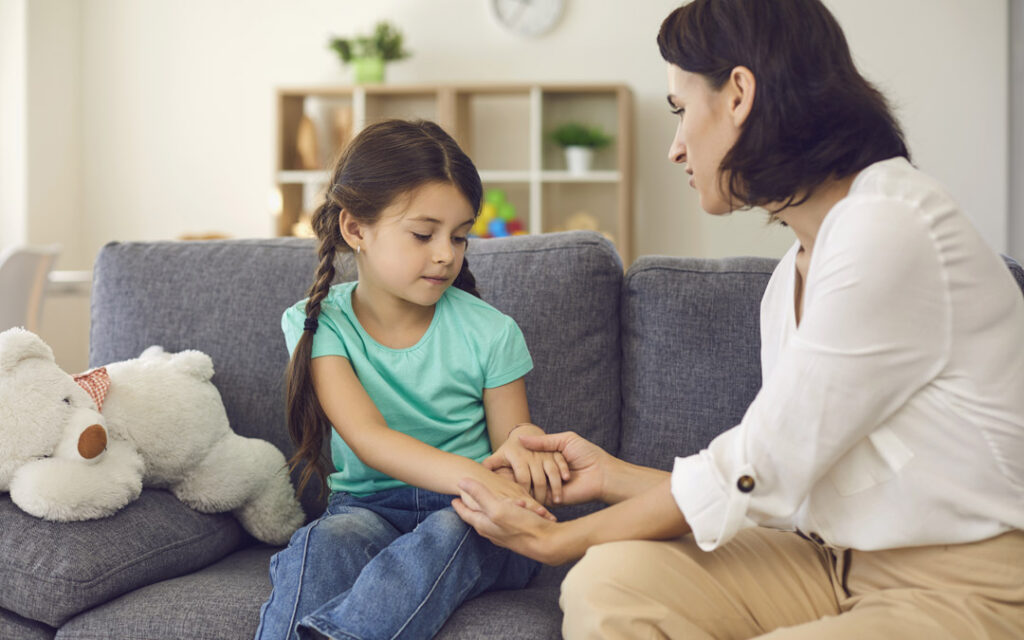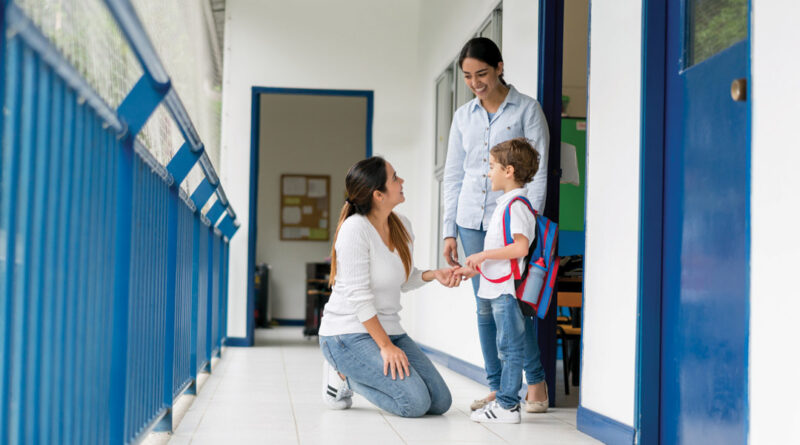It’s back-to-school time and as parents, we want to make sure our children get off to a positive start.
That’s why we asked Rabbi Aaron Levitt, executive director of Jewish Educational Services, to share some insights about what we can do to make the school year a great one for our kids.

Levitt recently joined Jewish Educational Services, a new agency of The Associated: Jewish Federation of Baltimore. It was created this summer to support Jewish day schools, congregational schools and preschools, along with educators and families.
How can parents help to ease the transition back to school for kids who have been negatively impacted by the pandemic?
We are only starting to understand the mental health impact that COVID-19 has had on our children, and schools are devoting more resources to this area.
Parents can talk to their children about resilience and share how excited they are for them to start a new school year.
Parents whose children are anxious should communicate with the school ahead of time to put into place supports. Children should receive a consistent message that the adults in their lives are there for them, that it is ok to ask for help, and that tough times don’t last; tough people do.
What is the best way to handle separation anxiety?
Parents can ease potential anxiety at the start of the school year by having their child visit the classroom and meet the teacher ahead of time.
Having a nightly practice of the child picking out their clothes and snacks for the next day, or creating short goodbye rituals for drop-off times, can also help build routine. If your child is still having difficulty, speak to the school about identifying an adult who can greet the child each day and make them feel welcome.
How should parents approach teachers if their kids are struggling?
The best way to support students is to have a strong partnership between parents and educators. This requires open and honest communication, mutual trust and respect, and always putting the child’s needs first.
Educators care deeply about each of their students and lose sleep at night when they see them struggling. But they have many students to keep track of, each with unique needs. Parents should approach teachers with Kavod (respect), asking them for help, rather than criticizing what they perceive as faults. Be open to the feedback the teacher shares.
Come with an attitude of curiosity. While you know your child better than anyone else, the teacher may have valuable perspectives to share about your child’s learning needs or social dynamics. Come up together with an action plan and set a time to follow up. Always remember to thank the teacher for being your partner.

If parents are unfamiliar with the Jewish rituals their child learns in school, how can they catch up and incorporate them into their homes?
We send our children to a Jewish school because we want them to receive a well rounded education grounded in our tradition and heritage. Kids will come home with songs, stories, Hebrew words and projects celebrating Jewish holidays. They may sing about dipping apples in honey before Rosh Hashana, bring home a popsicle stick Sukkah, or have a turn to be Shabbat Abba or Ima (father or mother).
As parents, we can nurture that curiosity and joy and learn along with our children. If our child asks us about something unfamiliar, we can ask the teacher for more information. When you send a child to any school, the entire family grows and learns.
Learn more about programs from JES and the Library at cjebaltimore.org.
Back-to-School Reads
Suggestions from the Jewish Library of Baltimore
Preschool
• We Don’t Eat Our Classmates by Ryan T. Higgins
Pre-k through Kindergarten
• Meesha Makes Friends by Tom Percival
First grade
• Bonaparte Falls Apart by Margery Cuyler and Will Terry
Second grade
• Junkyard Wonders by Patricia Polacco
Third through Fifth grade
• The Lemonade War by Jacqueline Davies
Middle School
• Maxi’s Secrets: (or What You Can Learn from a Dog) by Lynn Plourde
• Slacker by Gordon Korman
High School
• The Genius under the Table: Growing up Behind the Iron Curtain by Eugene Yelchin
• RBG’s Brave & Brilliant Women: 33 Jewish Women to Inspire Everyone by Nadine Epstein, et al
Parents
• The Power of Showing up: How Parental Presence Shapes Who Our Kids Become and How Their Brains Get Wired by Daniel J. Siegel and Tina P. Bryson
• Emunah with Love and Chicken Soup: The Story of Rebbetzin Henny Machlis, the Brooklyn-Born Girl Who Became a Jerusalem Legend by Sara Y. Rigler
Book suggestions from Jessica Fink, executive director, Jewish Library of Baltimore. Books are available for check-out at the Library.





